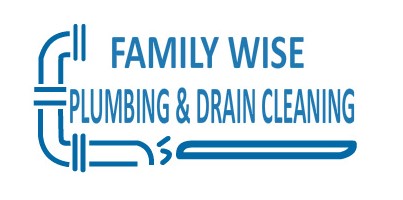5 Common Causes of a Clogged Sewer Line and How to Prevent Them
Your sewer line is a crucial part of your home’s plumbing system, ensuring waste flows away from your property. A clogged sewer line can lead to messy backups, unpleasant odors, and expensive repairs. At Family Wise Plumbing, we’re here to help you understand the common causes of sewer line clogs and how to prevent them.
1. Grease and Fat Buildup
Grease and fat from cooking can solidify and stick to the walls of your pipes, creating stubborn blockages. Over time, these clogs grow, reducing the flow of wastewater.
How to Prevent It:
- Never pour grease, oil, or fat down the drain.
- Use strainers in your sink to catch food particles and dispose of them in the trash.
- Collect grease in a sealed container and discard it properly.
2. Flushing Non-Flushable Items
Despite their convenience, items like baby wipes, paper towels, and feminine hygiene products are not designed to break down in water. These items can accumulate in the sewer line, causing major blockages.
How to Prevent It:
- Only flush toilet paper and human waste.
- Avoid flushing “flushable” wipes, as they often do not disintegrate quickly enough.
- Educate family members about proper flushing habits.
3. Tree Root Intrusion
Tree roots naturally seek out water sources, and your sewer line can be a prime target. Once inside, roots can grow and obstruct the flow of waste, potentially damaging the pipes.
How to Prevent It:
- Avoid planting trees near sewer lines.
- Schedule regular sewer line inspections to catch root intrusion early.
- Consider installing root barriers or consulting professionals for root removal.
4. Pipe Damage or Deterioration
Over time, sewer pipes can deteriorate due to age, shifting soil, or external pressure. Cracks, collapses, and misaligned sections can restrict the flow of wastewater and lead to clogs.
How to Prevent It:
- Replace outdated materials like clay or cast iron pipes with modern alternatives such as PVC.
- Conduct regular maintenance and inspections to catch damage before it worsens.
- Consider trenchless repair methods to minimize disruption.
5. Heavy Rain or Flooding
Excessive rain can overwhelm your sewer system, especially if it’s connected to stormwater drains. This can lead to debris and silt entering the pipes, creating blockages.
How to Prevent It:
- Install backflow prevention devices to protect your home during heavy rains.
- Ensure your stormwater drainage systems are clear and functional.
- Schedule routine sewer cleaning to remove debris and silt buildup.
Conclusion
Understanding the common causes of a clogged sewer line is the first step to preventing costly and inconvenient plumbing issues. By following these simple prevention tips, you can keep your sewer line running smoothly.
If you suspect a problem with your sewer line, don’t wait! Contact Family Wise Plumbing today for professional inspection, cleaning, and repair services. Let our experienced team handle your plumbing needs with care and expertise. Call us now to schedule an appointment!
